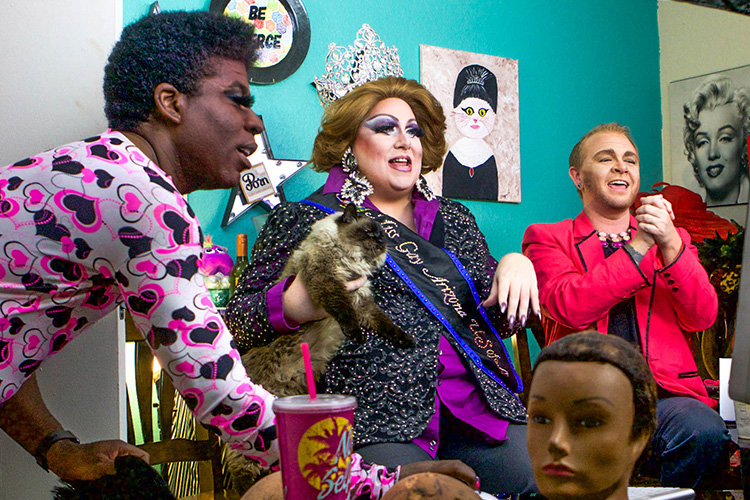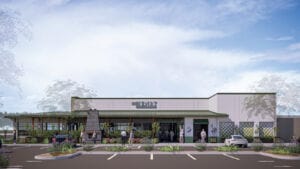Hit TV Shows such as RuPaul’s Drag Race kickstarted a drag movement in many major cities, and downtown Phoenix is no exception, being one of Arizona’s drag hotspots with weekly events happening at venues all over the city.
Local bars and clubs, such as Charlie’s Phoenix, one of the city’s largest gay bars, attract people of all backgrounds with shows and special events hosted by drag queens every night.
“There’s a variety, there’s a lot of diversity from what I’ve seen,” Rana Hammerlein, a regular attendee of Charlie’s shows, said. “I’m from New York, and it’s a little different there. From what I’ve seen here there’s a great sense of community.
Many local drag queens, such as Felicia “FeFe” Minor, a Phoenix-based entertainer with over 4,000 Instagram followers, discovered their love for the art in Arizona, thanks to the strong presence the industry holds in areas like downtown Phoenix and Old Town Scottsdale.
“I grew up in California a little bit sheltered, and I moved out to Arizona to get away from California and get a change of scenery,” Minor said. “When I got here, I met my husband and one of the first dates we went on was to a drag bar, and then I was hooked from the word ‘go’.”
READ ALSO: Eddie Broadway: Talented drag performer and local leader
Minor began her career as a “Halloqueen”, and moved on to host a weekly show, alongside three of her fellow performers, on Wednesday nights at bars and clubs like Forbidden, located in Scottsdale, and The Rock, a neighborhood bar in the Melrose District. Minor now hosts her own livestream talk show, alongside drag king Freddy Prinze Charming, titled “Let’s Have a FeFe”. The duo started the show in 2012, and livestream on multiple platforms, including YouTube, Twitter and Twitch, on Wednesdays at 8 P.M.
“I got into livestreaming before it was cool, and I have the evidence,” Minor said of her nine-season long show. Minor and Prinze are approaching their tenth season of the show with new computers funded for by fans of the show through fundraisers and donations.
Like many other performers of color, Minor faced the challenge of getting the opportunities to practice the art she loves when she first entered the industry. Even after performing for over a decade, Minor still faces these challenges today.
“Everybody wants their spotlight,” Minor said. “Phoenix has a huge drag market and for a while there, there wasn’t really a seat at the table for a lot of POC entertainers, and I still feel like that’s still a thing we’re working on, and I think that’s the entertainer industry in general.”
Although the entertainment industry is one of the most competitive fields to work in, the drag community in Phoenix works together to help out aspiring kings and queens. Minor lists Phoenix-based Barbra Seville, Mia Adams, Savanna Stevens and the late Chantelle Douglas as just some of her mentors that helped her get started in the world of drag.
Huge turnouts at shows and positive feedback from audiences make entertainers feel supported by their communities, and Minor enjoys giving back to the communities that have helped her succeed.
“I love helping people that are coming up in the scene who need my help while also raising money for community organizations,” Minor said. “Recently, I raised $5,000 for black-led organizations and non-profits, mainly. That was all during the pandemic while we were in lockdown.”
Like those before her and those that will come after, Minor encourages people to venture into the world of drag with a positive and open mindset.
“If you’re looking from the outside in, I’d say open the door, come on in, there’s a family waiting inside,” Minor said. “Be open to learning more about your community; we’re all one community. As much as people want to say “all lives matter”, you have to learn about those other lives.”




